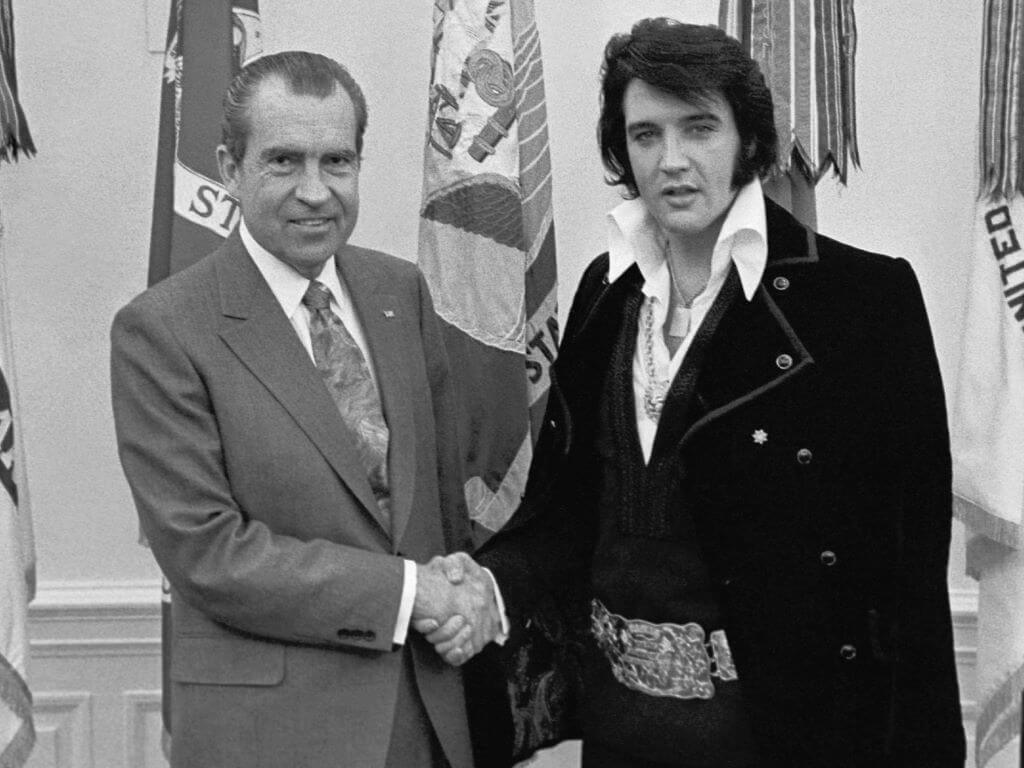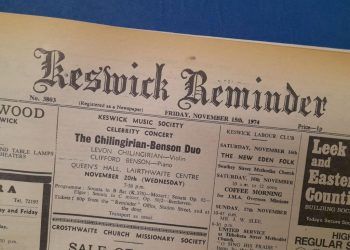
Nobbut Laiking, by Ross Brewster
Want to take a walk in his shoes? Well, Elvis, large as life, is back in the building.
Thanks to the almost limitless capabilities of AI — artificial intelligence — the performer anyone over 70 will tell you is still “The King”, is to appear in a concert later this year in London. It’s likely to be a “jaw-dropping experience”, say the AI immersive technology whizz kids behind the project.
Elvis could be the start of something big, just as he was with rock and roll in the 1950s. If they can bring one legend to life, why in future years won’t we be scrambling for tickets to watch Sinatra and Pavarotti or heading to the cinema to see the stars of the silver screen resurrected? And who is to say figures from history can’t be brought to visual life?
So is AI the 21st century equivalent of the creation of the internet? A development set to change our lives in ways we can only guess at. In medical research and some surgical procedures it is already making a positive mark and the role of AI in the diagnosis of serious illnesses, often predicting problems years ahead, will be invaluable.
So why am I so worried then? AI has many advantages, but it is a double-edged technology. It may entertain me and keep me alive, but it will also lie to me. And how will I know the difference?
Johnny Cash, another entertainer who is likely to return to the concert stage in his revived form, sang a song to President Richard Nixon in the White House entitled “What Is Truth?”
They hadn’t heard of deep fake then, although Nixon himself was the archetypal fake. Now the technology exists to create false videos so lifelike they are indistinguishable from the real thing. Machines may be harmless enough until they fall into the hands of malicious operators and then, whether it’s television news, social media, documentaries or YouTube, Cash’s question about truth will become crucial.
If imitation of world leaders is so accurate, in voice and appearance, how will we know that the guy pressing the red nuclear button is really the leader of North Korea or a cleverly engineered fake?
The only reason a speech by US President Joe Biden came under suspicion recently was because the AI version did not forget his words or tumble off the stage when he’d finished his speech.
Deep fake has already upset the Mayor of London, himself a victim, and the fear is that speeches purporting to be from election candidates could affect the whole process of voting. Recent history of voting in this country suggests it doesn’t take a lot to fool the public.
If AI can create Elvis then manipulating speeches by politicians, fake endorsements, ID theft and fabricating court evidence would seem well within the compass of the more sophisticated machines. Just wait for the first entertainer or politician to face blackmail over some concocted pornography claim.
I suppose there is another side to all this. How can we be sure our computer or our smartphone is not lying to us? A return to face to face meetings would seem to be the only secure way of establishing truth.
We used to talk to each other before we buried our heads in our phones which destroyed personal contact. Maybe we need to get back to the oldest, most reliable means of communication — our voice.
As for Elvis, who would have celebrated his 89th birthday on January 8th, he could be due lots of royalties now his most famous recordings are set for a comeback. How to get the money to him? That’s one problem even AI can’t solve. Yet.
The last phone book
Have you received your new phone book? The last one, ever, it says. A pathetic specimen compared to the old days when circus strongmen created a whole act out of tearing the books in half.
It took some doing. They were about six inches thick. Only men who had successfully completed Charles Atlas’s dynamic tension course had half a chance.
Atlas had adverts in the Sunday papers and popular magazines. Don’t be the wimp on the beach who has sand kicked in your face. Muscle up and soon you’ll be attracting all the pretty girls — and ripping up phone books for fun.
I presume that we’re all using smartphones now and lots of people have given up using landlines. We used to know all the local dialling codes. The phone book was a lifeline to local businesses. This last one is as thin and weedy as the wimp on the beach.
Standing up to flytippers
Residents of a Warwickshire village struck back at flytippers who were dumping debris in local lanes. They used their own cars to blockade two vans until the police arrived. The good news: the vans were impounded by the cops.
Farmers are particularly vulnerable to fly tipping. The NFU says it can cost thousands of pounds to clear land. It adds insult to injury that victims have to pay the cost of clearing their own land.








